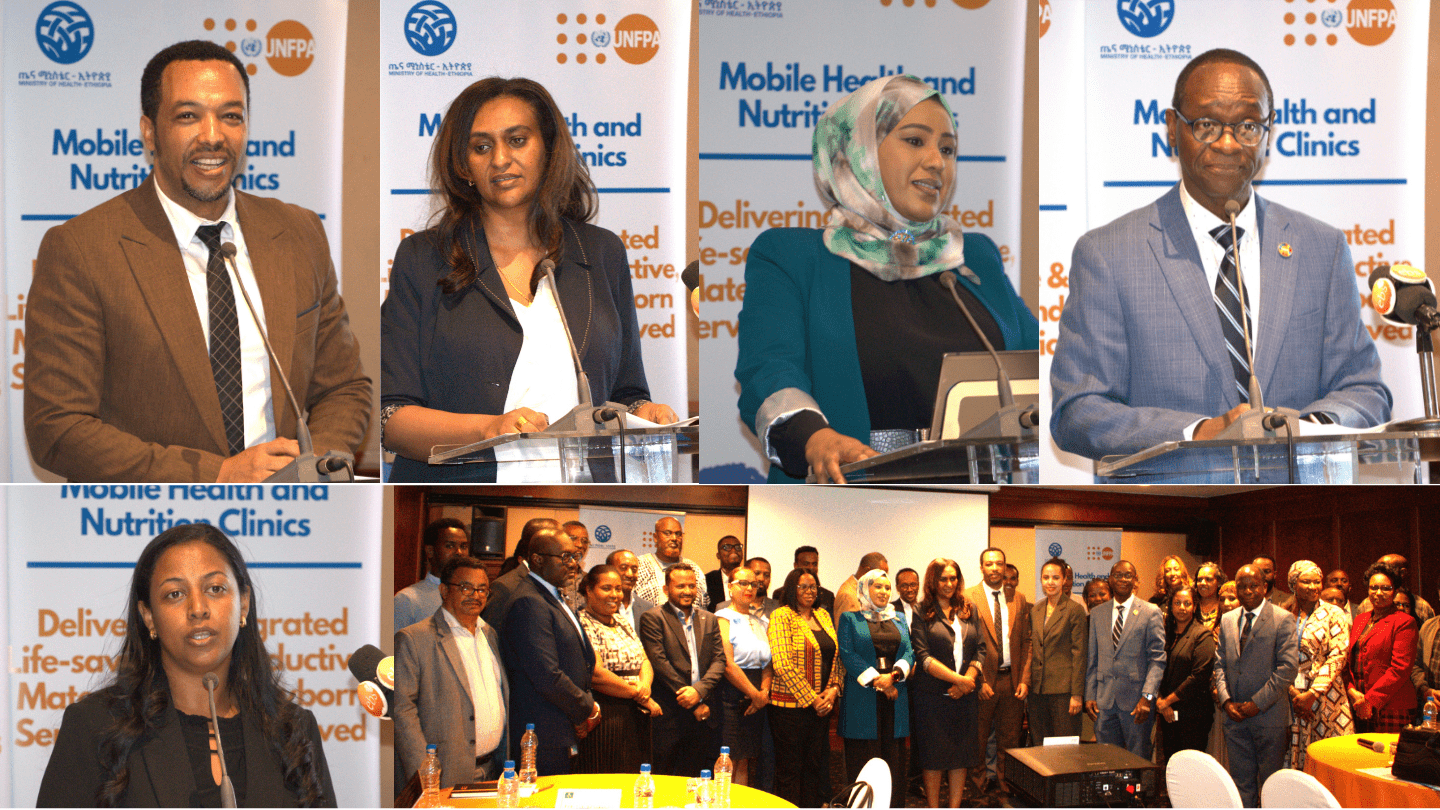The “Testing Mobile Health and Nutrition Clinics in Ethiopia” Project, which will be supported by UNFPA and selected sister UN agencies in partnership with the Afar, Oromia, and Somali Regional Health Bureaus, was launched today. The Bill and Melinda Gates Foundation will financially support the project in the coming three years.
The project expands upon an existing Gates Foundation-funded program introducing interventions such as ultrasound examination for pregnant women and multiple micronutrient supplementation. Addressing persistent health disparities through innovative solutions will be at the heart of this initiative by deploying Mobile Health and Nutrition Clinics – heavy-duty vans repurposed into fully equipped, solar-powered medical units capable of delivering lifesaving care in remote areas.
This project will be implemented in selected Afar, Oromia, and Somali Regions zones to reach underserved communities with integrated reproductive, maternal, newborn, and nutrition services. The investment in this project will target 12 woredas directly benefiting four hospitals, 12 health centers, and four mobile health and nutrition clinics, with an additional four high-spec ambulances to be handed over to the three regions. Medical supplies and equipment, as well as reproductive health kits and dignity kits, will also be procured with the support of the project to strengthen the referral health facilities and address the hygiene and protection needs of vulnerable women and girls. The project implementation areas in the three regions have very low indicators of reproductive, maternal, newborn, and child health and nutrition, including high rates of home deliveries, high malnutrition and vaccination rates, and low coverage of other critical health services.
Speaking on the occasion, Mr. Koffi Kouame, UNFPA Country Representative, said, the mobile health and nutrition clinics “are lifelines on wheels, equipped to save lives, promote dignity, and ignite change.” He went on to say that while the clinics reach the last mile, they will also complement and strengthen static health facilities through a seamless referral system to ensure that no one is left behind.
The Ethiopian Health Sector Transformation Plan prioritizes health equity in addressing the needs of underserved and geographically hard-to-reach communities in the country for lifesaving services. Socio-cultural practices, long distances, lack of road access, and high costs associated with health services continue to aggravate regional disparities in health outcomes.
The implementation of mobile health and nutrition team services in Ethiopia was pioneered in the Somali and Afar Regions. The Federal Ministry of Health has since formalized this approach with the National Mobile Health Services Implementation Guideline to standardize service delivery.
UNFPA has been supporting mobile health services through local partners to address needs on sexual and reproductive health, including family planning, antenatal care, postnatal care, and response services for survivors of sexual and gender-based violence in emergency-affected areas. The mobile health and nutrition clinics will be linked with ambulances and static health facilities in catchment areas to strengthen referral linkages, thereby reducing maternal and neonatal mortality in the selected sites in the intervention regions.
The project launching ceremony was attended by high-level officials from the Ministry of Health, Ministry of Women and Social Affairs, Ministry of Finance, senior officials of the project implementation regions, the Gates Foundation, UNFPA, and sister UN agencies overseeing the project's implementation.


